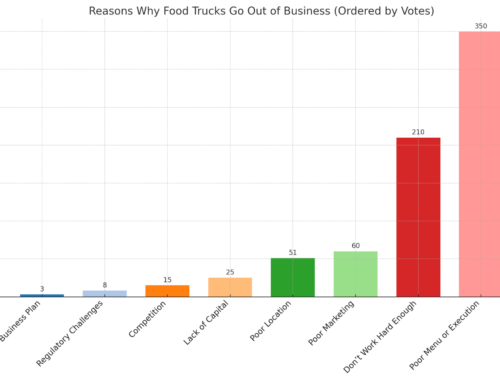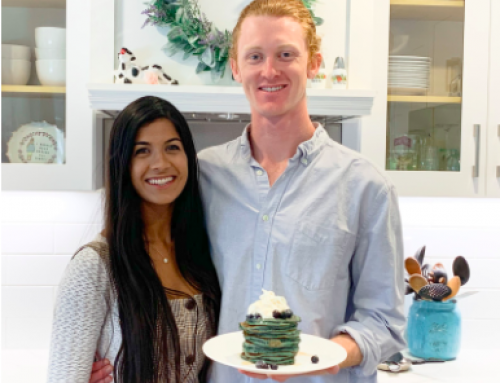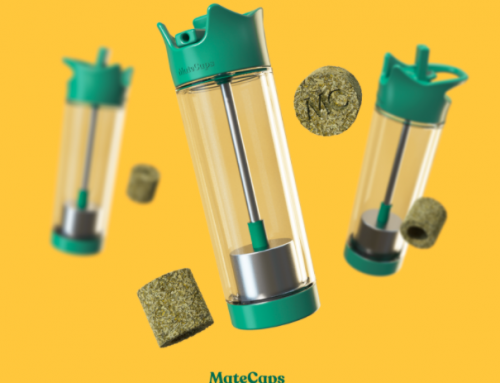Hello! Who are you and what bread business did you start?
I launched Orange Dot Baking Company to share the wildly nourishing and delicious gluten free bread that I developed for my son, Andrew, who has celiac disease. You see, most gluten free bread is not only unhealthy and boring, it can also give you a bellyache because most are made with xanthan gum. I sought to create a bread with a lot of protein that wouldn’t hurt Andrew’s stomach–and that tasted delicious.
I was inspired by Greyston Bakery that creating employment could be a way of giving back to my community.
Our bread is fun and epicurean! We bake gourmet flavors like Rustic Rosemary, Everything Better, Tasty Tuscan, and Cinnamon Raisin. We call it a Major English muffin and a Major biscuit because the bread is about the same size—but it’s great as a sandwich roll, a hamburger bun, or even as French toast.
We are now in approximately 40 stores, including 10 Whole Foods in Washington DC, and Charlottesville, and Richmond, VA.
What are your ballpark revenue numbers?
We expect to have around $150K in revenues in 2019.
How did you come up with the idea to start a gluten-free bread company?
In 2014, a report was written about poverty in my hometown of Charlottesville, VA, called the Orange Dot Report. The report noted that if you looked at a census map in Charlottesville, that there would be an orange dot of poverty in the middle. Inspired by Greyston Bakery in Yonkers, New York, I decided to start my own bakery.
To get an idea what this would involve, I worked for six months on the production side of a successful local bakery. Then I started experimenting with my own recipes.
Baking with gluten-free ingredients is a complete science experiment and I threw myself headlong into researching and experimentation for an entire year.
I bought every gluten free cookbook on the market, and read every blog on gluten free baking. I sought to understand the role of every ingredient, and analyze what made my own stomach hurt when I ate it (like sorghum flour and xanthan gum) and why.
I have no formal training in baking and soon realized that this was an asset, because I had no preconceived ideas about what ingredients or baking process would work.
Eventually, I stumbled upon my own process that involves custom made pans and a lot of water. I refined my recipe until I was baking super moist, delicious gluten free bread with a texture that people love. The most frequent comment I hear: “OMG, THIS is gluten free?”
Related Reading: How a Culinary Grade Built a $26k/Month Pastry Business
My first market was the farmers market here in Charlottesville, called City Market. The farmers market is a great way to validate that people will actually buy your product, and also provide a little ready cash. As this is my third career and our children are no longer at home, I have the luxury of being able to work my tail off while only inconveniencing my husband.
Take us through the process of developing and testing your product.
Creating my bread involved exhaustive experimentation with ingredients–everything from banana flour to teff. Most gluten free recipes require the use of xanthan gum, which I determined early on that I was not going to use. I think xanthan gum is the dirty little secret of the natural food industry.
It’s actually black mold, and a lot of people have an allergic reaction to it that ranges from a mild bellyache to migraine headaches and flu like symptoms. The FDA calls it a “synthetic food.”
I eventually settled on a proprietary blend of flours which do not rely on any ingredients like xanthan or guar gum to bind it together.
We all know that with gluten free bread, it’s all about the texture. At Orange Dot, we have developed an innovative baking process that yields a texture that is hearty and satisfying like traditional bread.
Start-up costs are pretty significant–even renting a commercial kitchen rather than building your own can be expensive.
Describe the process of opening the business.
Launching a business requires learning a LOT about a lot. I love problem solving, but there are times when I say that I just don’t want to learn any more. It can be exhausting!
It’s really important early on to identify and use resources in the community. Many areas have a Small Business Development Center (SBDC) with people who are trained to help people launch businesses.
Even if you don’t write a full blown business plan, understand the numbers in your business–how and when are you going to break even? And read Allan Dib’s “One Page Marketing Planner” which has very practical, down to earth advice regarding marketing.
I built my own website in Shopify. It’s a great platform if you intend to do any e-commerce, and it’s fairly simple to set up.
I think it’s worth investing in a bookkeeper to get set up in a financial program like Quickbooks from the beginning so you can actually track what your Profit and Loss.
The biggest lesson I learned is to have a PLAN before you start. If you don’t know where you’re going, you’re going to end up somewhere else.
Since launch, what has worked to attract and retain customers?
I believe that the best way to retain customers is to build a relationship with them. My customers love following the growth of my company, and they love it when I help inform them about the health aspects of various ingredients.
One of the virtues of being a small company is that I’m a human–not a big, impersonal brand. As much as possible, I want my customers to know that I care about their health and the enjoyment they get out of their next meal.
I personally respond to every email on my website, and the phone number on my package is my cell phone. We are currently at one farmers market and planning on expanding into 3 more next year, as this is really an excellent way to connect with customers and drive trial of the bread through sampling.
And of course, we try to use social media to amplify our message.
How are you doing today and what does the future look like?
We are in the process of trying to raise $500K to expand our operations. We currently distribute through a local distributor, which has worked out well.
Related Reading: How I Started a $75K/Month Vegan Cookie Business with My Mom
The downside of this is that there is a minimum purchase for delivery to a new store which can be fairly significant but the upside is that they are very straightforward to deal with and there are no mysterious costly charge backs.
About 30% of our sales are at the farmers market, 10% online, and the remainder through distribution.
What have you learned through starting this gluten-free bread business?
The best advice I can give you is that beyond a certain point, the answers are not in your head! Get out there and meet people, network, and find people who have expertise that you don’t have and are willing to share it. You’ll be amazed at how many entrepreneurs have been through what you’re going through and are willing to help you.
The help I’ve received from other people/entrepreneurs at every step of the way has been one of the most life affirming things I’ve ever done. Really.
Any essential tools you use in your business?
Milanote is a great tool for organizing your thoughts in one place
Airtable is a great tool for organizing your information.
Both have free versions.
What have been the most influential books, cookbooks, podcasts, or other resources?
I would highly recommend reading “The 7 Habits of Highly Effective People” and “The One Page Marketing Planner” and “The E Myth Revisited”
Definitely check out the Food Finance Institute and their podcast “Edible-alpha.”
Advice for other food entrepreneurs?
Starting a food business is a capital intensive undertaking. Do not go down this path unless you plan to stay small and bake out of your home kitchen for the farmers market, or you are comfortable borrowing/raising $300-500K in cash. Be realistic.




